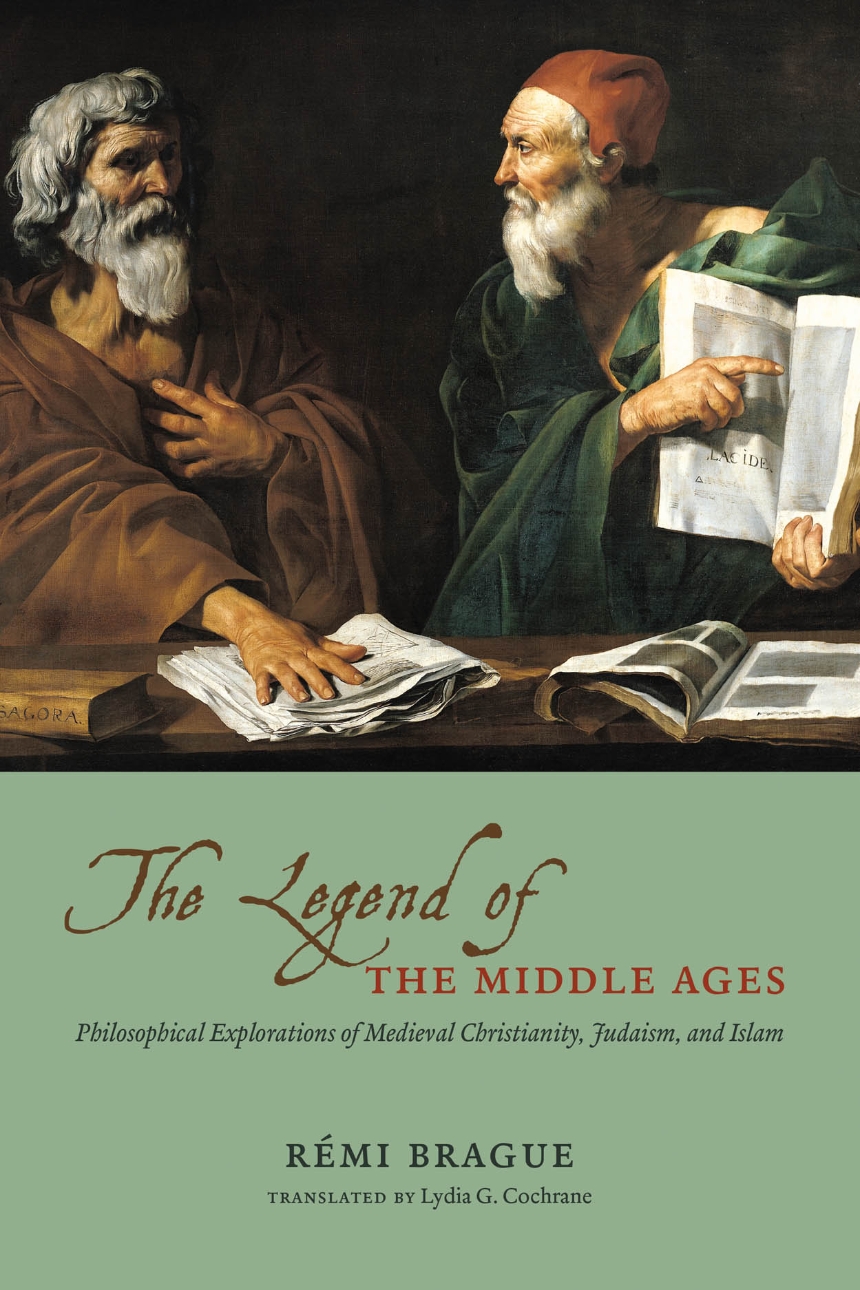The Legend of the Middle Ages
Philosophical Explorations of Medieval Christianity, Judaism, and Islam
The Legend of the Middle Ages
Philosophical Explorations of Medieval Christianity, Judaism, and Islam
This volume presents a penetrating interview and sixteen essays that explore key intersections of medieval religion and philosophy. With characteristic erudition and insight, RémiBrague focuses less on individual Christian, Jewish, and Muslim thinkers than on their relationships with one another. Their disparate philosophical worlds, Brague shows, were grounded in different models of revelation that engendered divergent interpretations of the ancient Greek sources they held in common. So, despite striking similarities in their solutions for the philosophical problems they all faced, intellectuals in each theological tradition often viewed the others’ ideas with skepticism, if not disdain. Brague’s portrayal of this misunderstood age brings to life not only its philosophical and theological nuances, but also lessons for our own time.
304 pages | 6 x 9 | © 2009
History: History of Ideas
Philosophy: History and Classic Works
Reviews
Table of Contents
Preface
Translator’s Note
Interview
PART I GENERALITIES
1 The Lessons of the Middle Ages
2 The Meaning and Value of Philosophy in the Three Medieval Cultures
3 Just How Is Islamic Philosophy Islamic?
PART II COMMON THEMES
4 Is Physics Interesting? Some Responses from Late Antiquity and the Middle Ages
5 The Flesh: A Medieval Model of Subjectivity
6 The Denial of Humanity: On the Judgment “These People Are Not Men” in Some Ancient and Medieval Texts
PART III COMPARISONS
7 Three Muslim Views of the Christian City
8 The Jihad of the Philosophers
PART IV FILIATIONS
9 Inclusion and Digestion: Two Models of Cultural Appropriation, in Response to a Question of Hans-Georg Gadamer (Tübingen, September 3, 1996)
10 The Interpreter: Reflections on Arabic Translations
11 The Entry of Aristotle in Europe: The Arab Intermediary
12 The Extra-European Sources of Philosophic Europe
PART V PRICKED BALLOONS
13 Some Mediterranean Myths
14 Was There Any Dialogue between Religions in the Middle Ages?
15 Geocentrism as the Humiliation of Man
16 Was Averroes a “Good Guy”?
Appendix: Original Texts
Notes